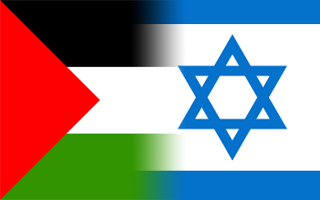Avi Zalkin is an 11th grader at the Masters School. This piece does not necessarily represent the opinions of the Tower staff or The Masters School. Tower is a community forum in which members of our community can share their opinions as long as they are in the spirit of civil discourse. We welcome responses through the comments section below, or through letters to the editor addressed to Towereditors@mastersny.org. Note that comments are being moderated and uncivil responses will not be posted.
Opening the Tower website on a sunny Monday afternoon, I was excited to see another voice weigh in on the ongoing crisis in the Middle East. I recognize the necessity for a multitude of perspectives in media, and I find their consumption by a skeptical public an invaluable facet of an educated community.
Now, I strongly caution readers to refrain from absorbing the beliefs of either opinion piece without first delving into the truth and its subtleties. I wrote my article with a concrete goal in mind, and in no way did I intend to fully elucidate the Byzantine history of the region.
(Pun somewhat intended.)
This history is difficult—perhaps impossible— to grasp in its entirety, a fact furthered by many interest groups that purposely serve to cloud reality.
Understand there is nuance; all arguments suffer from bias that must be recognized. Dylan and I try very hard to distance our Judaism and Zionism from our comprehension of history— yet we recognize this goal can be difficult. Readers must likewise understand that ‘nuance’ is often used as a guise to reinforce shallow counter-arguments. In fits of whataboutism, people will often evoke the unsaid as a fallacy to “refute” the inarguable.
Also know that whether in one thousand or one hundred thousand words, you will never fully solve a conflict that the many policy geniuses of the past century have failed to— especially not by doing so in the same mechanistic manner.
I have many personal beliefs about the article “Salaam, Shalom, Serenity: Finding Peace in Freedom from Oppression.” But above all, I applaud Matthias for his courage, realizing no matter what he wrote, there would be pushback. As I know dearly, drafting such a piece becomes a schoenabatic act between championing your view and understanding your opponents’.
While I believe this article is filled with mischaracterizations of the conflict at large, I am duly aware that Matthias and many others may say the same of my own. My first inclination was to draft a response systematically addressing some of the potentially harmful phraseology, yet I realized this is unwise: it gets us nowhere closer to truth or reconciliation.
Having had the pleasure of speaking with Matthias about his piece, I understood him to have written out of a just resolve, operating firmly under what he believes is a necessary duty. While we have many points of disagreement, I believe this should never be used to spark hatred. Having spoken with Dylan about this, our consensus is unanimous.
This is not debate, and this sets back civil conversation. Be wary of letting the hate from another continent bleed into our hallways; be compassionate to all who feel compelled to pick up a pen from a place of good conscience. You may not agree with him— or me, for that matter— but sympathize with us for a moment, as we were able to do with each other.
So, Masters, talk about it, debate, yet do so out of an earnest heart that is willing to accept the humanity of the opposing view.
I must reiterate: I support the safety and self-sufficiency of both peoples in equal measure— and why wouldn’t I? A free and sovereign Palestine would mean a calmer future for Arabs and Jews alike.
However, a free Palestine must be a democratic nation that respects its citizens and one that acknowledges Israel’s right to exist. As long as this bloody battle may be (one I pray to be swift and bloodless, yet know better than to expect that reality), always retain true hopes for peace. Peace would acknowledge significant concessions on both sides— Israel giving up settlements and perceived security and Gazans and the world concentrating on removing terrorism and indoctrination from Palestinian territory while simultaneously creating lasting protective infrastructure.
At the heart of the matter, tragedy will continue to unfold until all agree to be reasonable.
Then may we sound the bugles and, donning the blazon of unity, revel in the miracle of compromise. However long it takes to arrive, this just reveille will indubitably awaken a new era in the Middle East.
Now is a time for mourning; mourning both lost lives and the hope for reason. At home, we must stand firmly behind our principles, sit down, discuss, and see the goodwill from which everyone desires to operate.
Avi Zalkin is an 11th grader at the Masters School. This piece does not necessarily represent the opinions of the Tower staff or The Masters School. Tower is a community forum in which members of our community can share their opinions as long as they are in the spirit of civil discourse. We welcome responses through the comments section below, or through letters to the editor addressed to Towereditors@mastersny.org. Note that comments are being moderated and uncivil responses will not be posted.




Jed Melnick • Oct 26, 2023 at 9:33 AM
Avi, your piece is extraordinary. I too wrestled with how to respond. I too wavered between a desire to refute, respond and argue and wanting to encourage the Masters community to find constructive ways to learn, dialogue and grow together. I am a professional mediator and as I worked on drafting a response, I struggled to find the words that you have so eloquently written. I am thrilled to hear that you and Matthias have been talking. That is my hope for all of us. We should all be talking.